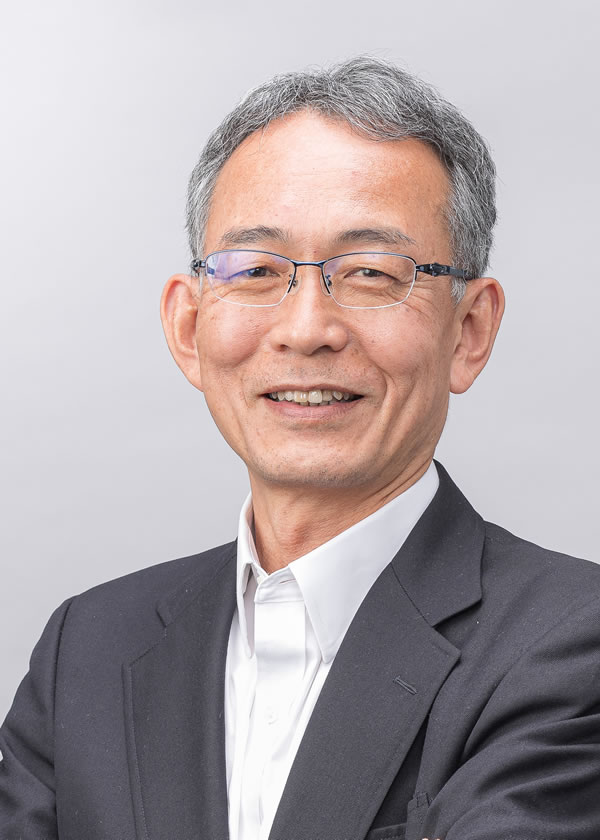Greeting from Director
Hello, I would like to take this opportunity to greet you, I am Hiroyuki Fukuyama, the new Director.
The Institute of Multidisciplinary Research for Advanced Materials (IMRAM) at Tohoku University is one of the largest university research institutes in Japan in the field of materials science. The word “multidisciplinary,” not “multimaterials” or “multimetrology,” is the essential meaning of IMRAM. Researchers have a discipline and an area of activity in which they use that discipline. IMRAM is a group of professional researchers who possess such diverse disciplines related to materials. As for myself, I am working in the area of metal and materials processing in the discipline of chemical thermodynamics. Now, I would like to share my thoughts on the mission that IMRAM, with this diversity of disciplines, aims to achieve.
The three research institutes, the origin of IMRAM, were each established in the early 1940s with the following missions: The Research Institute of Mineral Dressing and Metallurgy conducts research on iron and steel making and other important metal processing, the Research Institute of Scientific Measurement responds to the need for a self-sufficient system of precision measuring instruments, and the Chemical Research Institute of Non-Aqueous Solution responds to the growing importance of non-aqueous solution chemistry (liquefied gas, etc.). These missions are simple, but they clearly state the mission of the institute, reflecting the demands of society at that time. On the other hand, looking at our current situation, to build a sustainable society, in addition to the perspectives of global environmental conservation, carbon neutrality and energy conservation, countermeasures against natural disasters and diseases have become major social issues based on the experiences of catastrophic earthquakes and new infectious diseases.
IMRAM has been reorganized by connecting, developing, and fusing the genes of science and technology for more than 80 years since the days of the above three research institutes, and now IMRAM’s mission is to “develop new directions that lead to paradigm shifts to address challenging societal problems related to materials and to solve these problems by integrating diverse disciplines.” For example, in the 1980s, the concept of recycling “urban mines” was proposed by Professor Michio Nanjo and his colleagues at the Research Institute of Mineral Dressing and Metallurgy, and this concept is now firmly established as a business model to extract and reuse valuable metals from waste electronic circuit boards from cell phones, home appliances, PCs, etc. The knowledge and experience from mineral processing to metal processing has been systematized as an academic discipline and is being applied to resource strategies, decarbonized steelmaking, and efforts to make nuclear technology safe and decommission it. This is just one example of IMRAM’s diverse disciplines and the fields in which they are applied.
In April 2024, the next-generation synchrotron radiation facility (NanoTerasu) began operation. IMRAM, as a key institute, has been actively involved in the project from the stage of attracting synchrotron radiation facility, and has contributed greatly to the establishment of the International Center for Synchrotron Radiation Innovation Smart (SRIS), an educational and research organization that utilizes the synchrotron radiation facility. In addition, the evaluation of soft materials (organic and polymeric materials and biomaterials) has been dramatically upgraded with the introduction of cryo-electron microscopes. These state-of-the-art facilities and equipment are expected not only to promote materials research at IMRAM, but also to become the core of an ecosystem where a science park will emerge in the Tohoku region and become a major center of industry-academia collaboration in Japan, attracting people from around the world and creating new value every day.
IMRAM is a comprehensive materials research institute with a well-balanced fusion of the three research axes of “materials,” “processes,” and “measurements.” It covers everything from basic materials essential for social infrastructure to advanced materials that will create a sustainable future society, and is working toward social implementation by integrating process and measurement technologies. We will continue to refine our cutting-edge science and technologies and produce highly educated and skilled researchers through the efforts of the entire institute.
April 2024,
Director Hiroyuki Fukuyama
